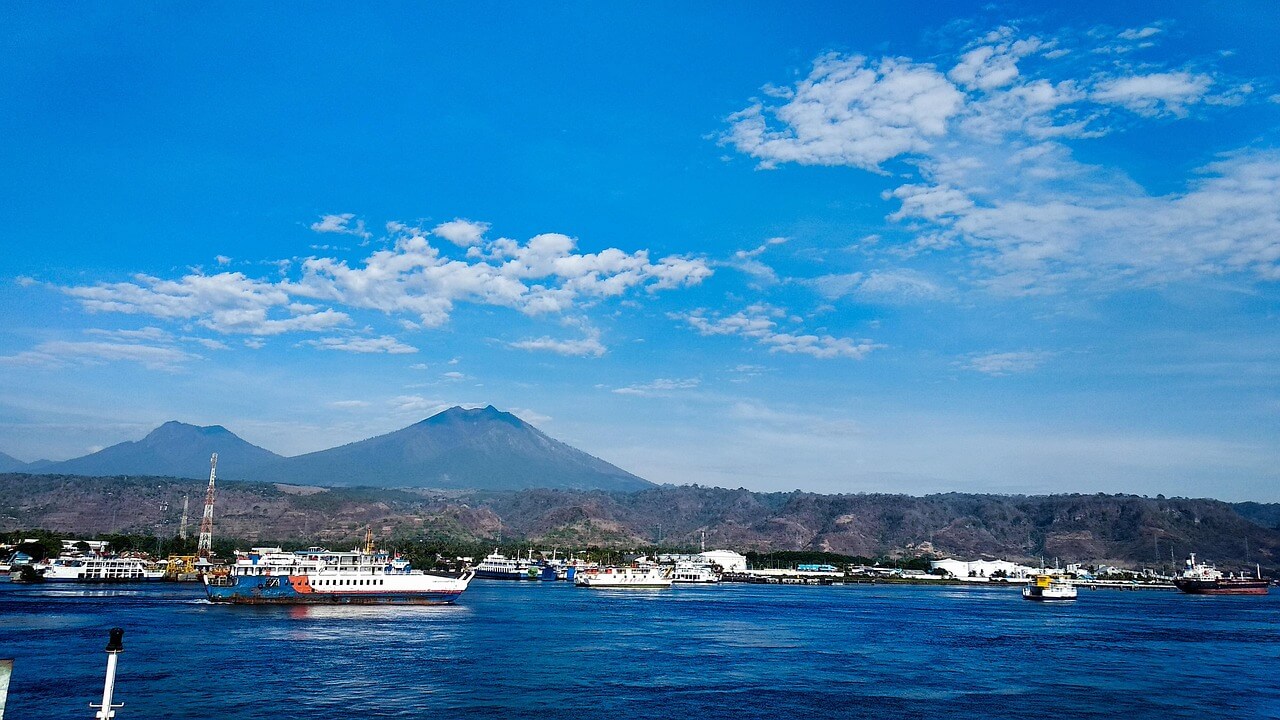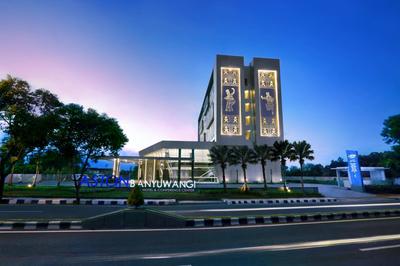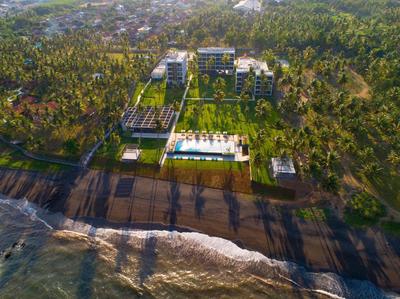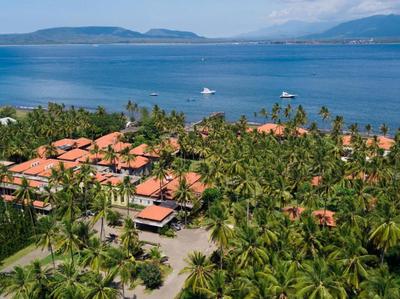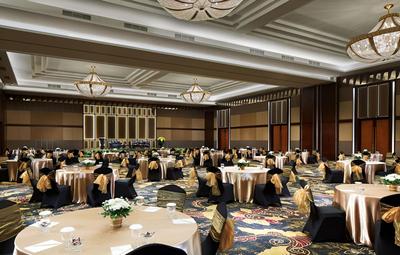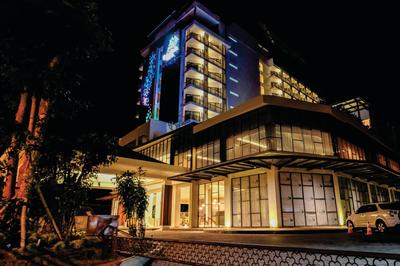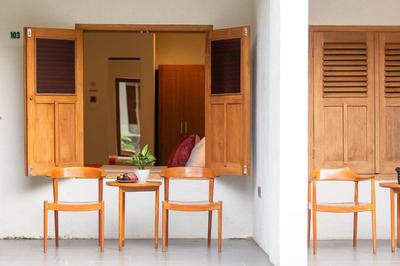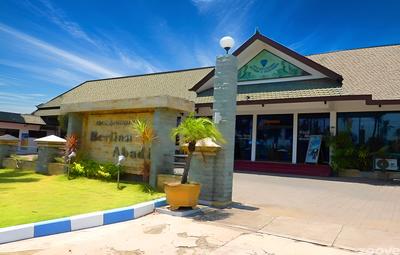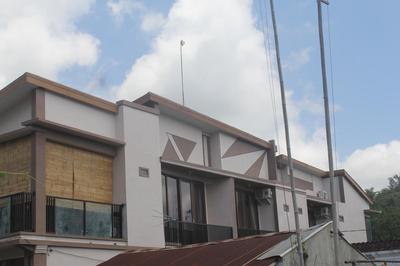When to visit Banyuwangi?
Banyuwangi, located on the eastern tip of Java, boasts a tropical climate dominated by two seasons: the dry season from April to October and the rainy season from November to March. The dry months are particularly popular among tourists, making it an ideal time for beach activities and outdoor exploration. Expect warm temperatures averaging 27-32°C (81-90°F) during this period, with lower humidity levels enhancing comfort.
Summer (June to August) is a peak season for tourists, who flock to discover the beauty of Kalibendo and the stunning beaches like Pulau Merah. This season is perfect for water sports, snorkeling, and sunset viewing. Spring (March to May) also attracts visitors who enjoy fewer crowds while experiencing the vibrant landscapes as everything comes to life post-rainy season.
During autumn (October to November), travelers can still enjoy sunny weather, making it favorable for activities like hiking the iconic Ijen Crater, famous for its mesmerizing blue flames and sulfur lakes. Winter months (December to February) bring occasional rains, transforming the landscape lush and green. While tourist numbers dip during this season, it can still be a magical time with breathtaking waterfalls and fewer crowds.
How to get to Banyuwangi?
Reaching Banyuwangi is convenient, with several transport options available. The closest major airport is Banyuwangi International Airport (BWX), offering domestic flights from Jakarta and Bali. From the airport, taxis can take travelers directly into the city or nearby attractions.
Bus services connect Banyuwangi with major cities like Surabaya and Bali, which is particularly popular among budget travelers. The journey from Surabaya takes approximately 8 hours, while Bali's ferry crossing takes around an hour. For a scenic experience, passengers can opt for the ferry from Gilimanuk, Bali, enjoying stunning views along the way.
For those driving, Banyuwangi is accessible via the national road network, allowing travelers to explore the scenic landscapes at their own pace. Renting a car can be a flexible option, especially for accessing natural sites and rural areas. Always plan ahead to avoid travel delays due to road conditions, especially during the rainy season.
Tourist activities in Banyuwangi
Banyuwangi offers a plethora of activities for all types of travelers. Nature enthusiasts will relish the stunning landscapes, including the Ijen Crater, renowned for its turquoise crater lake and captivating blue flames that glow at night. Guided tours are available, providing insight into the area and its unique geology.
Beaches like Pulau Merah and Watu Dodol invite sun-seekers for swimming, surfing, and relaxing on the soft sands. For those interested in culture, visiting the Blambangan Museum offers a glimpse into the rich heritage of the region, showcasing artifacts and local history.
Nightlife in Banyuwangi is gradually developing, with vibrant local eateries and cafes offering traditional music performances and dance shows, enhancing the cultural experience. A stroll through the bustling local markets allows visitors to taste delicious street food, providing an authentic taste of Banyuwangi's culinary delights.
Events and festivals
Banyuwangi hosts a variety of exciting events and festivals throughout the year, reflecting its rich cultural tapestry. One highlight is the Banyuwangi Ethno Carnival, typically held in August, showcasing a colorful parade featuring traditional costumes, music, and dance, that attracts visitors from near and far.
The Festival of Banyuwangi is another major event celebrated around May, where local arts, culinary exhibitions, and competitions bring the community together and promote local talent. The event is vibrant with food stalls and traditional performances.
Lastly, the Ijen Blue Flames Festival, occurring periodically depending on weather conditions, invites enthusiasts to witness the natural phenomenon of blue flames at Ijen Crater. Each August, during the Kartini Day celebration, various local cultural performances take place, allowing visitors to immerse themselves in the rich heritage of the region.
Family and kids activities
Banyuwangi offers numerous family-friendly activities that ensure a delightful experience for both kids and adults. Start at the Green Resort, where families can enjoy outdoor playgrounds and beautiful gardens, ideal for picnics or leisure days out.
The local beaches, such as Pulau Merah, are perfect for family outings, with safe swimming areas and shallow waters for younger children. Look for nearby water sports rentals for something a little more adventurous. Engaging in snorkeling or paddleboarding as a family can create lasting memories.
Visiting the Taman Sritanjung park provides ample room for kids to run around and enjoy the scenery, with local food stalls nearby to grab a snack. For a touch of culture, families can explore traditional markets, where children can learn about local fruits, crafts, and foods while experiencing the vibrant local life.
What to see in Banyuwangi?
Banyuwangi is rich in attractions, blending natural beauty and cultural significance. Here’s a list of must-see spots:
- Ijen Crater: Famous for its surreal blue flames; a must-visit for adventurous souls.
- Pulau Merah Beach: A stunning beach and surf spot, perfect for sunbathing and swimming.
- Blambangan Museum: Showcases the history and culture of Banyuwangi and the surrounding region.
- Banyuwangi Grand Mosque: An architectural gem representing the local Islamic community.
- Sukamade Beach: Known for turtle conservation; a unique opportunity to see nesting turtles.
- Karangasem Temple: A site of worship that offers insights into local spirituality and history.
- Meru Betiri National Park: A natural reserve home to diverse wildlife and perfect for hiking and eco-tourism.
Accommodation in Banyuwangi
Banyuwangi offers a range of accommodation options to suit various budgets and preferences. From luxury resorts to budget hostels, there is something for everyone. For high-end travelers, resorts like the Mercure Banyuwangi provide stunning views and luxurious amenities, ideal for a relaxing getaway.
For mid-range options, several boutique hotels offer comfortable stays with a touch of local charm, such as the Ketapang Indah Hotel, which is known for its excellent service and proximity to major attractions.
If you’re traveling on a budget, there are numerous hostels and guesthouses scattered throughout the city, providing affordable yet comfortable lodging. Staying near the city center (Kota Banyuwangi) offers convenience for transportation and dining options, while beachfront accommodations provide a tranquil atmosphere and stunning sunrise views.
Important numbers and information
- Emergency Numbers: Police - 110, Fire - 113, Ambulance - 118
- Tourist Information Centers: Located in the city center and near major attractions.
- Main Hospitals: RSUD Blambangan, RS Bhakti Rahayu
- Airport Contacts: Banyuwangi International Airport (BWX) - (0333) 510871
- Public Transport Info: Local buses run regularly; check schedules at terminals.
- Taxi Apps: Grab, Gojek; both serve the area efficiently.
- Currency: Indonesian Rupiah (IDR); ATMs available throughout the city.
- Payment Methods: Cash is preferred; credit cards are accepted at major hotels and restaurants.
Where to eat?
Banyuwangi offers a culinary adventure, rich in local flavors and unique dishes. Prominent in local cuisine is the traditional 'Rujak Soto,' combining fresh fruits and spicy broth, available at numerous street stalls. Visitors can also indulge in 'Nasi Tempong'—a spicy rice dish typically served with fried fish or chicken.
Restaurants along the coastal areas provide stunning sea views while serving fresh seafood delicacies. Popular spots for dining include ‘Warung Kopi Kita’ for a laid-back atmosphere and tasty local dishes.
Street food is vibrant, offering an array of choices. Sample 'Pempek' fish cakes, delicious 'Sate' skewers, and tasty local desserts like 'Klepon.' Prices for meals vary, with street food starting as low as IDR 10,000 to mid-range restaurants averaging around IDR 80,000 per meal.
Nightlife – where to go out?
The nightlife scene in Banyuwangi is a blend of cultural experiences and local entertainment. While quieter than major cities, it offers unique spots for evening outings. One popular venue is 'D’Liquid Lounge,' known for its lively atmosphere, serving great cocktails and featuring local live bands.
The 'Taman Sritanjung area' transforms at night, where locals gather to enjoy food stalls, street performances, and spontaneous dance parties, creating an energetic vibe. Clubs like 'Taman Jazz' cater to music lovers with jazz performances and jam sessions in a cozy setting.
For an authentic experience, exploring local night markets can be entertaining, with an array of food options and a thriving social scene, giving visitors a glimpse into the everyday life of Banyuwangi's residents.
Transport and taxis
Getting around Banyuwangi is relatively easy, with several public transport options available. Local buses are the most common mode, with fares generally being low, but it’s good to confirm prices and routes ahead of time. Tuk-tuks and ojek (motorcycle taxis) are also popular, providing flexible transport for short distances.
Taxis can be ordered via apps like Grab and Gojek, offering convenient transport with clear pricing. Always check that the meter is on for traditional taxis to avoid misunderstandings.
Some tips for using public transport include:
- Carry small bills for fares as change might not be given.
- Use apps to order taxis for ease and safety.
- Be mindful of rush hours, especially for buses.
Parking and public garages
Parking in Banyuwangi is generally accessible with various options available around the city. Street parking is common but can be limited during peak hours, especially near commercial areas. Look for signs indicating parking zones to avoid fines.
Public garages are available near major attractions and shopping areas, usually charging a nominal fee. Prices may vary, but expect to pay around IDR 5,000 to IDR 10,000 per hour.
For drivers, consider these tips:
- Arrive early to secure a good parking spot, especially during events.
- Observe local parking signs to avoid fines.
- Keep valuables out of sight in parked vehicles.
Surroundings of Banyuwangi
The surroundings of Banyuwangi offer several alluring day-trip options for those looking to explore beyond the city. One of the must-see spots is the famous Ijen Crater, where outdoor enthusiasts can trek to witness the breathtaking blue flames at night—a unique spectacle.
Furthermore, the tranquil Sukamade Beach is famous for turtle conservation efforts and is an excellent destination for families. The nearby Baluran National Park houses a diverse range of wildlife and is perfect for a day of ecotourism.
For a cultural experience, the village of Osing provides insights into the local lifestyle and traditions, often showcasing handicrafts and local arts. Each of these spots promises a memorable adventure just a short distance from Banyuwangi.
